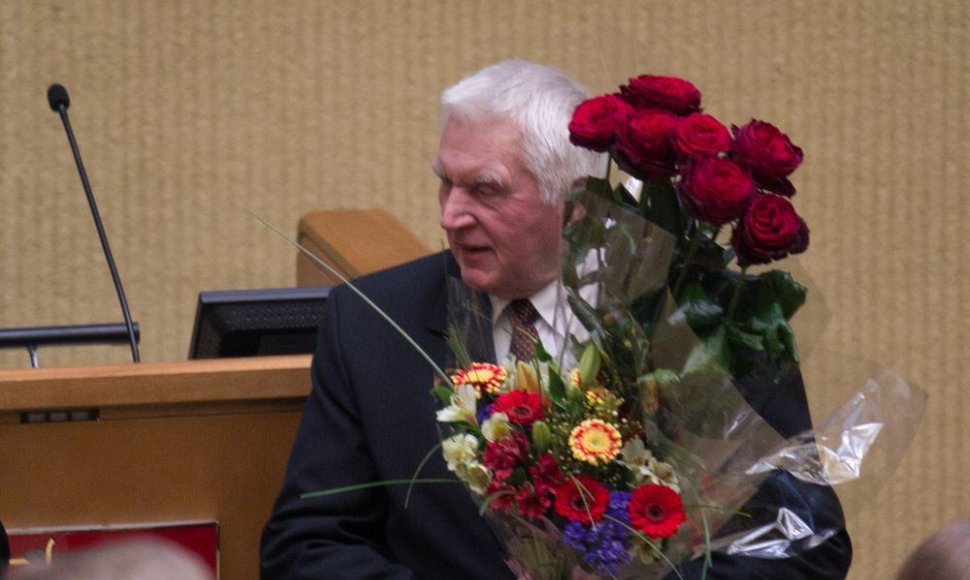Terleckas, an active participant of unarmed resistance efforts, thanked his fellows at the Freedom League. He said his late wife Elena was his closest ally and best adviser.
"I thank the Seimas that decided to award me with the Freedom Prize on this occasion. I understand it as recognition of the Freedom League – not only myself but also all members of the Freedom League – living and deceased. To avoid repressions of the invaders, we did not register membership but fought for freedom together. I thank all friends in the efforts and the remaining members of the Freedom League," Terleckas said.
Established on September 15, 2011, the Freedom Prize is intended to celebrate achievements of people and organizations and their contribution to the protection of human rights, promotion of democracy and international cooperation in their struggle for self-determination and sovereignty of Central and Eastern European nations. The first Freedom Prize of 2011 was awarded to Russian activist Sergey Kovalev.
Present parallels
After accepting the prize, Terleckas likened his trial, where he was sentenced to a jail term in a concentration camp in Siberia, to the charges against Eglė Kusaitė, a Lithuanian national who is tried for assistance in an attempted terrorist attack in Russia.
"In 1957, I stood trial for alleged participation in the founding of an underground organization – the National People's Front. Indeed, the founding was mentioned and I refused to be involved. This did not keep them from sentencing me to four years. I would want such trials to be forgotten, just like the Soviet times were. Unfortunately, the trial of Eglė Kusaitė is very similar to mine in terms of absurdity," Terleckas said at a solemn meeting at the parliament on Sunday dedicated to the Day of Freedom Defenders.
In Terleckas' words, "some structures in the theater perform their parts together with the ill-famed Russian Federal Security Bureau, which has compromised its name on the global arena and has organized a number of terrorist attacks."
"The most absurd aspect is that the play is performed in the territory of Lithuania, a member of the EU and NATO. Foreign intelligence agents interrogate a Lithuanian citizen. The play should be ended without delay. If someone likes cooperation with the FSB, let them choose the job, but not in Lithuania, and here we will allow work of employees who are sincerely dedicated to their state; however, such employees are being fired and taken to court for some reason. This is a disgrace to all of us," the dissident said.
"Let's leave Eglė Kusaitė alone. Taking care of the well-being of one's citizens, including Eglė, is the primary function of a state," he said.
The trial where Kusaitė is charged with plotting self-detonation in a Russian military base in Chechnya is heard at a Vilnius court.
Kusaitė was detained in October 2009. According to data available to Lithuanian prosecutors, Kusaitė had made contacts with Islamic groups and was preparing for a terrorist attack in Chechnya, a republic in North Caucasus striving for independence from Russia. Russian prosecutors say Apti Magmadov and his sister Aishat used a mobile telephone and Internet to persuade Kusaitė into joining the gang and detonating herself in a public place in Russia. The Magmadov siblings were sentenced in Russia in December 2011.
The young woman has denied the intentions, but earlier data suggests she told a pre-trial judge in 2010 her plans to go to Moscow and commit suicide due to a bad situation in her family and drugs.
Kusaitė maintains she was then subjected to psychological and physical violence during the interrogation, in addition to psychotropic medication. Furthermore, she says she was included into the unlawful activities by the State Security Department. The prosecutors have flatly denied the accusations.












